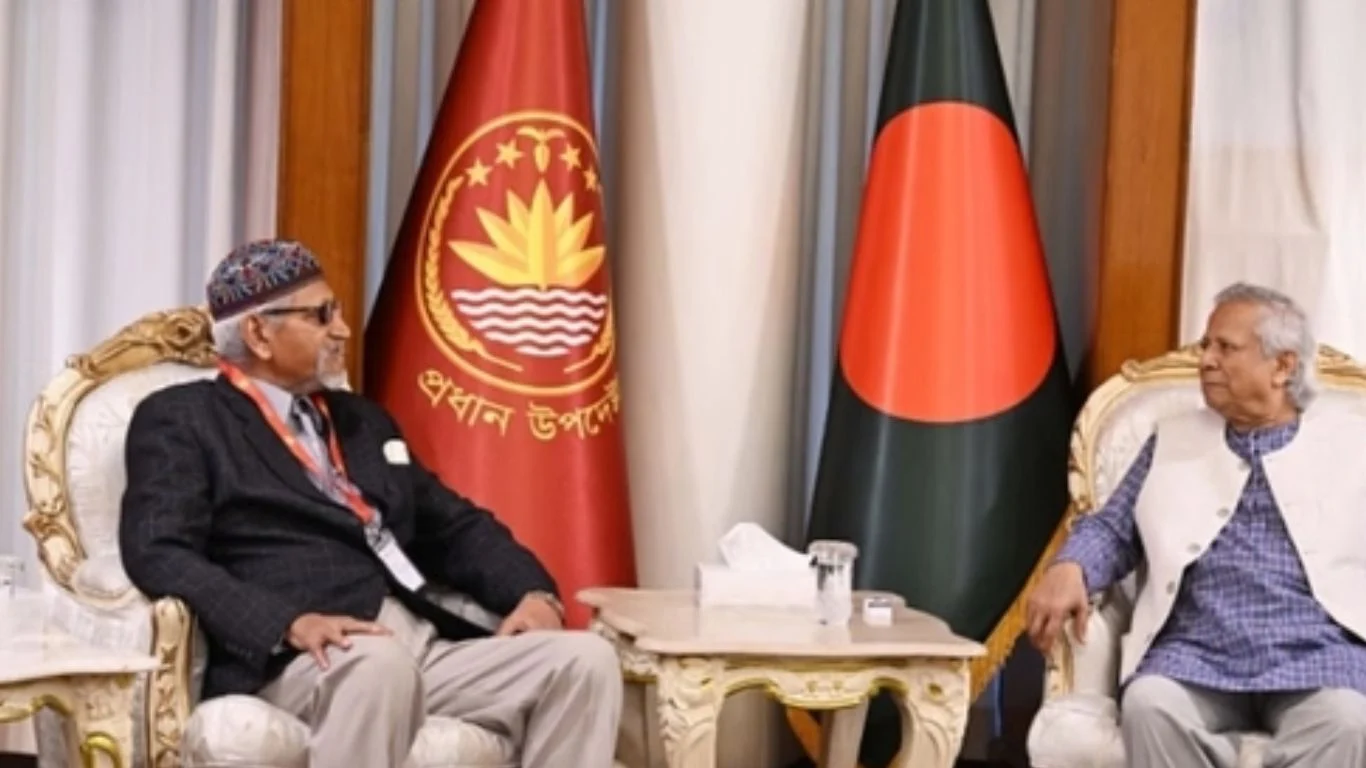
In a provocative and widely criticized statement, ALM Fazlur Rahman, a retired major general of Bangladesh and former chief of the Bangladesh Rifles (now the Border Guard Bangladesh), sparked outrage by suggesting that if India launches a military offensive against Pakistan in retaliation for the recent Pahalgam terror attack in Jammu and Kashmir that claimed 26 lives, Bangladesh should respond by invading and occupying all seven northeastern states of India. Rahman, known for his close association with Bangladesh’s current chief advisor Muhammad Yunus, made the controversial remarks in a Facebook post written in Bengali, where he not only laid out the alarming suggestion of military aggression but also proposed initiating joint military discussions with China to facilitate what he described as a strategic operation.
“If India attacks Pakistan, Bangladesh will have to occupy seven states of northeast India. In this regard, I feel it is necessary to start discussions on joint military arrangement with China,” Rahman wrote, fueling speculation about Dhaka’s geopolitical orientation and the potential implications for regional security. The timing of Rahman’s inflammatory remarks is particularly sensitive, as India and Bangladesh are navigating a fragile phase in their bilateral relationship. The historically close neighbors have seen a steady erosion in trust in recent months, especially after former Bangladeshi Prime Minister Sheikh Hasina sought political asylum in India amid rising instability and targeted violence against Hindu minorities in Bangladesh—an issue that has remained a point of concern in Indian political and diplomatic circles. Rahman’s post comes on the heels of earlier contentious remarks made by Muhammad Yunus himself during a March visit to China, where he seemed to downplay India’s strategic hold over the northeastern region. Speaking about India’s northeastern states, collectively known as the “Seven Sisters”—a landlocked region geographically cut off from the Indian mainland—Yunus emphasized Bangladesh’s geographic leverage in the area, calling it “the only guardian of the ocean” and implying that this positioning offers a gateway for China’s economic expansion through Bangladesh into India’s east.
“The seven states of India, the eastern part of India, are called the seven sisters. They are a landlocked region of India. They have no way to reach out to the ocean,” Yunus had remarked, framing Bangladesh as a pivotal economic and logistical corridor for regional power realignment led by China. The statement has been widely interpreted in India as a veiled endorsement of Chinese strategic interests in South Asia and a subtle threat to Indian sovereignty in its northeast. In New Delhi, the backlash was swift. Leaders from India’s ruling Bharatiya Janata Party (BJP) denounced Rahman’s comments as reckless and destabilizing, accusing certain elements in Dhaka of indulging in irresponsible military fantasizing at a time when diplomacy is essential. India’s External Affairs Minister, Dr. S. Jaishankar, without directly naming Yunus or Rahman, appeared to issue a diplomatic counter in his speech during a ministerial meeting of the Bay of Bengal Initiative for Multi-Sectoral Technical and Economic Cooperation (BIMSTEC) on Thursday, where he reaffirmed India’s firm commitment to regional security,
the integrity of its territories, and the importance of peaceful cooperation over provocative rhetoric. While Jaishankar avoided direct confrontation, the subtext of his remarks was interpreted as a strong rebuke to those challenging India’s territorial sovereignty. Observers note that Rahman’s statements, though not official policy, could still sour the ongoing efforts to rebuild trust between the two nations, especially given the sensitive geopolitical dynamics involving China, India, and South Asian neighbors. Experts on South Asian security also warn that such statements, if echoed by other influential voices in Bangladesh’s political or military circles, could embolden separatist sentiments or create friction within the ethnically and politically complex northeast region of India. With China’s growing influence in the Indian Ocean and South Asia, and its well-documented strategic ambitions through the Belt and Road Initiative (BRI), the idea of military cooperation between Dhaka and Beijing—no matter how unrealistic—strikes a nerve in New Delhi. India has consistently viewed China’s expanding footprint in Bangladesh, Sri Lanka, and Nepal as part of a “string of pearls” strategy aimed at encircling it. Rahman’s proposal, even if fantastical, plays into these long-standing apprehensions.
Furthermore, the idea that Bangladesh, a country with close cultural and historical ties to India and which shares over 4,000 kilometers of border with it, could entertain such an idea—however unofficial—poses a challenge to the long-term stability and mutual confidence essential for regional peace. Analysts argue that responsible political and military leadership in Dhaka will need to distance itself from such incendiary ideas to avoid undermining years of hard-won bilateral progress in areas such as trade, energy cooperation, water-sharing agreements, and border management. As tensions continue to simmer post-Pahalgam, with India carefully evaluating its options vis-à-vis Pakistan, the emergence of inflammatory rhetoric from across another border complicates the already tense geopolitical climate. India has so far refrained from any retaliatory military action in the immediate aftermath of the Pahalgam attack, but officials have indicated that all options remain on the table. In this context, Rahman’s remarks are not just diplomatically irresponsible but also potentially dangerous, especially if interpreted as reflective of broader strategic thinking in Dhaka’s power circles. As the region braces for uncertain political currents and power plays, voices like Rahman’s highlight the urgent need for cooler heads and stronger diplomatic engagement to prevent rhetorical escalation from turning into actual confrontation.

















